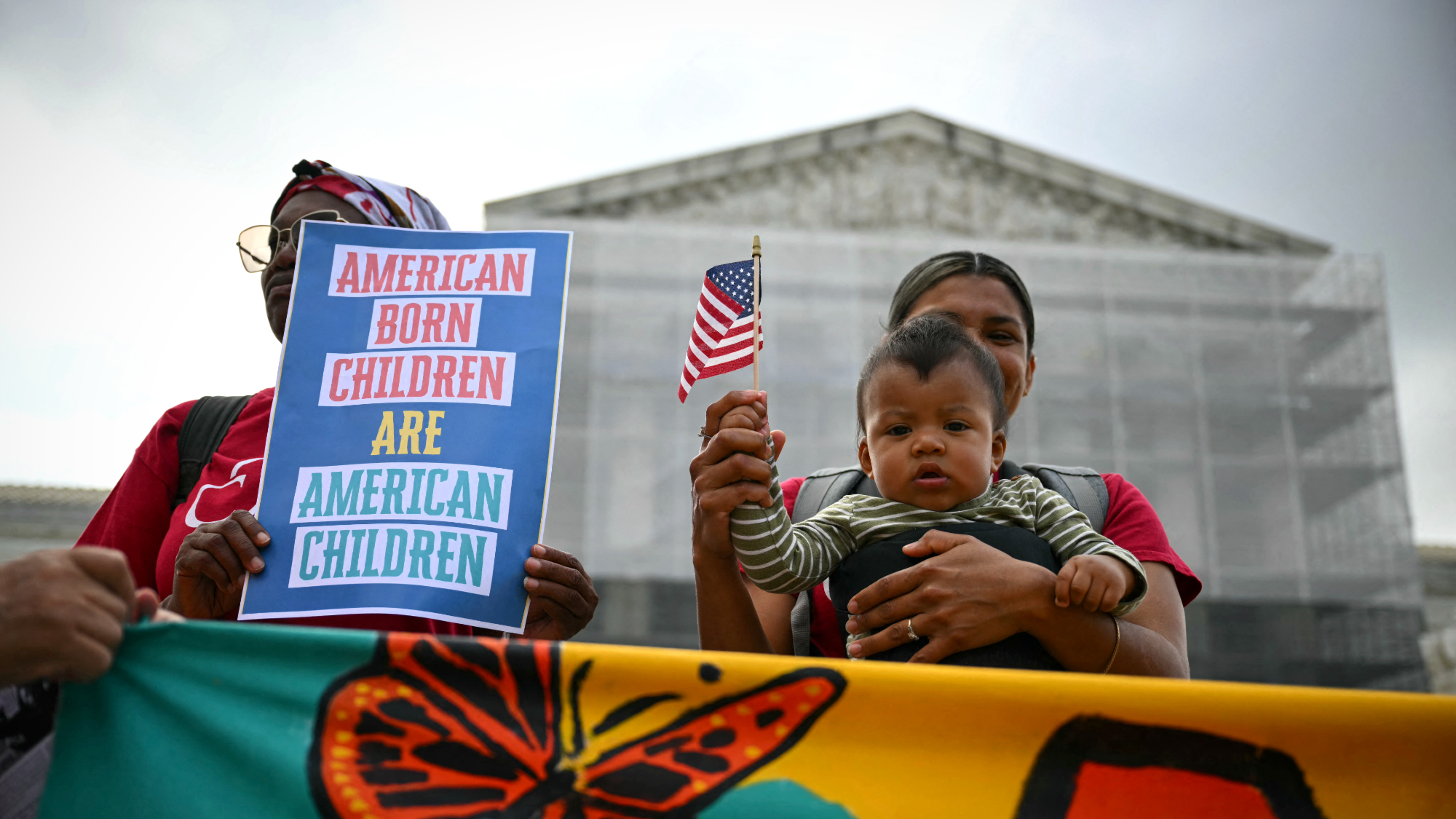Supreme Court weighs court limits amid birthright ban
President Trump's bid to abolish birthright citizenship has sparked questions among federal judges about blocking administration policies


A free daily email with the biggest news stories of the day – and the best features from TheWeek.com
You are now subscribed
Your newsletter sign-up was successful
What happened
The Supreme Court Thursday appeared inclined to limit federal judges from issuing nationwide injunctions against presidential orders but was divided on how to do so and seemed uncomfortable with the implications for the order at hand, President Donald Trump's unilateral attempt to end birthright citizenship. Three federal judges have blocked that order. In an emergency appeal, the Trump administration asked the Supreme Court to eliminate universal injunctions but not consider the merits of Trump's birthright order.
Who said what
During two hours of oral arguments, conservative justices "focused on the growing modern-day approach" of single judges blocking presidential policies, a practice that has raised bipartisan hackles, The Wall Street Journal said. "Liberals suggested the danger would be allowing the government to violate rights on a massive scale with no effective judicial remedy" and no mechanism to get a case before the Supreme Court.
Ending nationwide injunctions would create a "catch me if you can" justice system "where everybody has to have a lawyer and file a lawsuit in order for the government to stop violating people's rights," Justice Ketanji Brown Jackson said. In the birthright case, "all of those individuals are going to win," Justice Elena Kagan told Solicitor General John Sauer, and then "it's up to you to decide whether to take this case to us" on appeal. "If I were in your shoes, there is no way I'd approach the Supreme Court with this case," she added.
The Week
Escape your echo chamber. Get the facts behind the news, plus analysis from multiple perspectives.

Sign up for The Week's Free Newsletters
From our morning news briefing to a weekly Good News Newsletter, get the best of The Week delivered directly to your inbox.
From our morning news briefing to a weekly Good News Newsletter, get the best of The Week delivered directly to your inbox.
None of the justices "spoke up in defense of the order's legality," Politico said, "and several suggested that the order is almost surely unconstitutional." Several of the justices who "expressed concern" about the "proliferation" of nationwide injunctions also "appeared sympathetic" to arguments that allowing a patchwork of citizenship rules would prompt chaos, The Washington Post said, and "seemed open to a middle ground that would permit judges to issue universal orders in limited circumstances."
What next?
Trump's executive order remains blocked nationwide until the Supreme Court issues its decision. That might not happen "until late June or early July," The New York Times said, but the "unusual posture of the case could prompt quicker action."
A free daily email with the biggest news stories of the day – and the best features from TheWeek.com
Peter has worked as a news and culture writer and editor at The Week since the site's launch in 2008. He covers politics, world affairs, religion and cultural currents. His journalism career began as a copy editor at a financial newswire and has included editorial positions at The New York Times Magazine, Facts on File, and Oregon State University.
